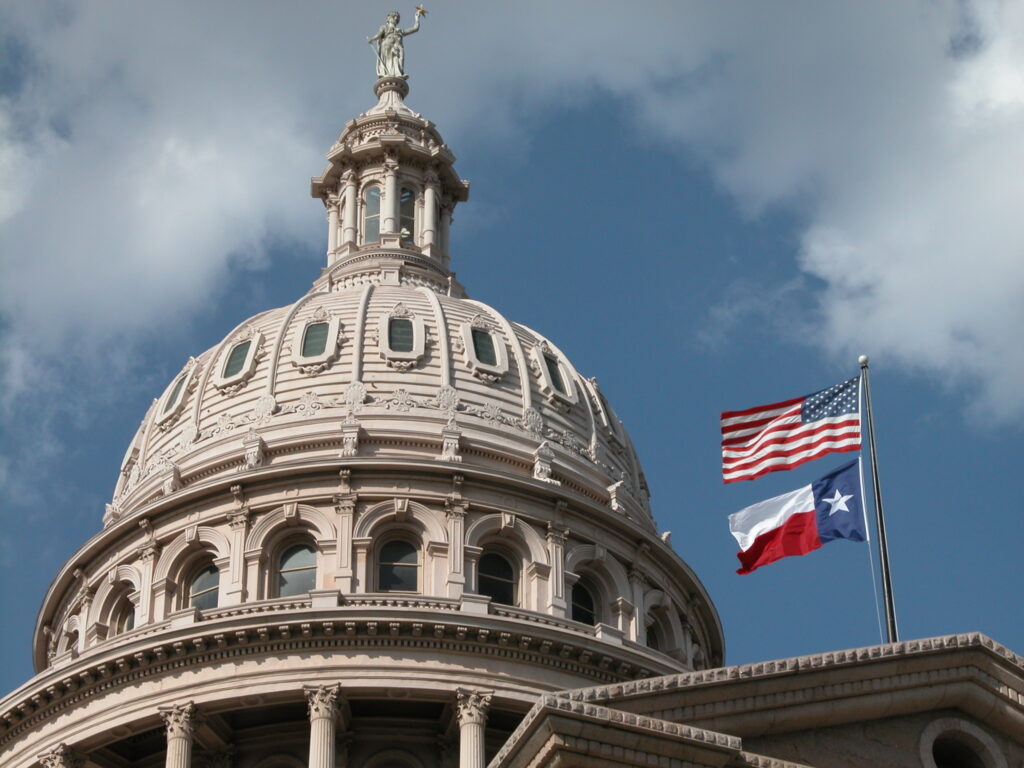Texas Republican Redistricting Chair Admits He Hasn’t Looked at Census Data

At the request of President Donald Trump, Republicans are working to squeeze out as many as five more GOP seats from the Texas congressional map, as Democrats rally opposition to the scheme and search out opportunities to derail it.
A Texas House hearing in Houston over the weekend drew such high attendance from residents opposing the rare mid-decade redistricting that the committee ran out of its 750 speaker signup forms and had to print more.
Asked whether he was aware that most of the state’s population growth over the past decade has come from communities of color, Rep. Cody Vasut (R), chair of the House redistricting committee, admitted he wasn’t.
“I don’t have that census data in front of me,” Vasut said. ”I haven’t looked at it.”
Repeatedly pressed to explain the purpose of the hearings, Vasut never broke from his script, saying only that Republicans are looking into revising maps because Gov. Greg Abbott (R) put redistricting on the agenda for the 30-day special legislative session.
State Rep. Gene Wu (D), chair of the Texas House Democratic Caucus, rejected that answer.
“We have the clear jurisdiction to be sitting here based on the governor’s call,” Wu said, “but we do not have any purpose in being here.”
Abbott himself has said very little about the decision to put redistricting on the agenda — which reportedly came after pressure from the White House – other than referencing “constitutional concerns raised by the U.S. Department of Justice.”
Assistant Attorney General Harmeet Dhillon sent a July 7 letter to Abbott and Attorney General Ken Paxton (R) singling out four congressional districts – three located in Houston, and one in the Dallas area – as unconstitutional racial gerrymanders because race was used to draw the districts.
But the notion that Texas is redistricting because of those concerns conflicts with numerous statements by state Republicans, including under oath during litigation over the state’s current map, that race wasn’t a factor in drawing the map.
Under pressure from Democrats, state Sen. Phil King (R), chair of the Senate redistricting committee, sent a letter Friday to Dhillon, issuing a formal invitation for her to appear and testify about her letter.
Vasut, asked Saturday to send a similar letter, said he would consider inviting Dhillon, but would not attempt to compel her attendance.
“I don’t believe that I or the committee have the power to subpoena her, because she’s a federal official,” Vasut said.
Senate Democrats have pushed back on that claim. King said in a hearing Monday he’s looking into whether they have the authority to issue a subpoena to Dhillon, but indicated he thinks state lawmakers likely do not have the power to subpoena federal officials.
Vasut said he hasn’t seen a proposed map from the GOP. But he confirmed the law firm the House hired for the redistricting process, Butler Snow, will only represent Republicans, not Democrats. He also said he plans to hold more public hearings after the proposed map is released.
Without new data or a map to consider, Democrats have little information about what they’re fighting against.
But U.S. Rep. Lizzie Fletcher (D-Texas), who represents Houston, said Saturday that Democrats aren’t only worried about a partisan gerrymander, but a map overhaul that would further dilute the voting strength of minority voters.
“All but one of the 13 congressional districts currently represented by a Democrat has a majority minority population, including all four districts here in Houston,” Fletcher said. “And in all 13 of those districts, minority voters elect their candidate of choice. And those 13 districts are the only districts where minority voters – who make up more than 60% of the population of our state – consistently and reliably elect their candidate of choice.”
Bishop James Dixon, president of Houston NAACP, said with access to health care and food at stake, redrawing the map is a matter of life and death for many communities.
“Texas is about to practice politician politics to enact and legalize politician policies in order to disenfranchise people that some folks think belong back on the plantation,” Dixon said. “We need to understand that this is against the laws of God, and not just the laws of the legislature. It’s a higher law than that.”